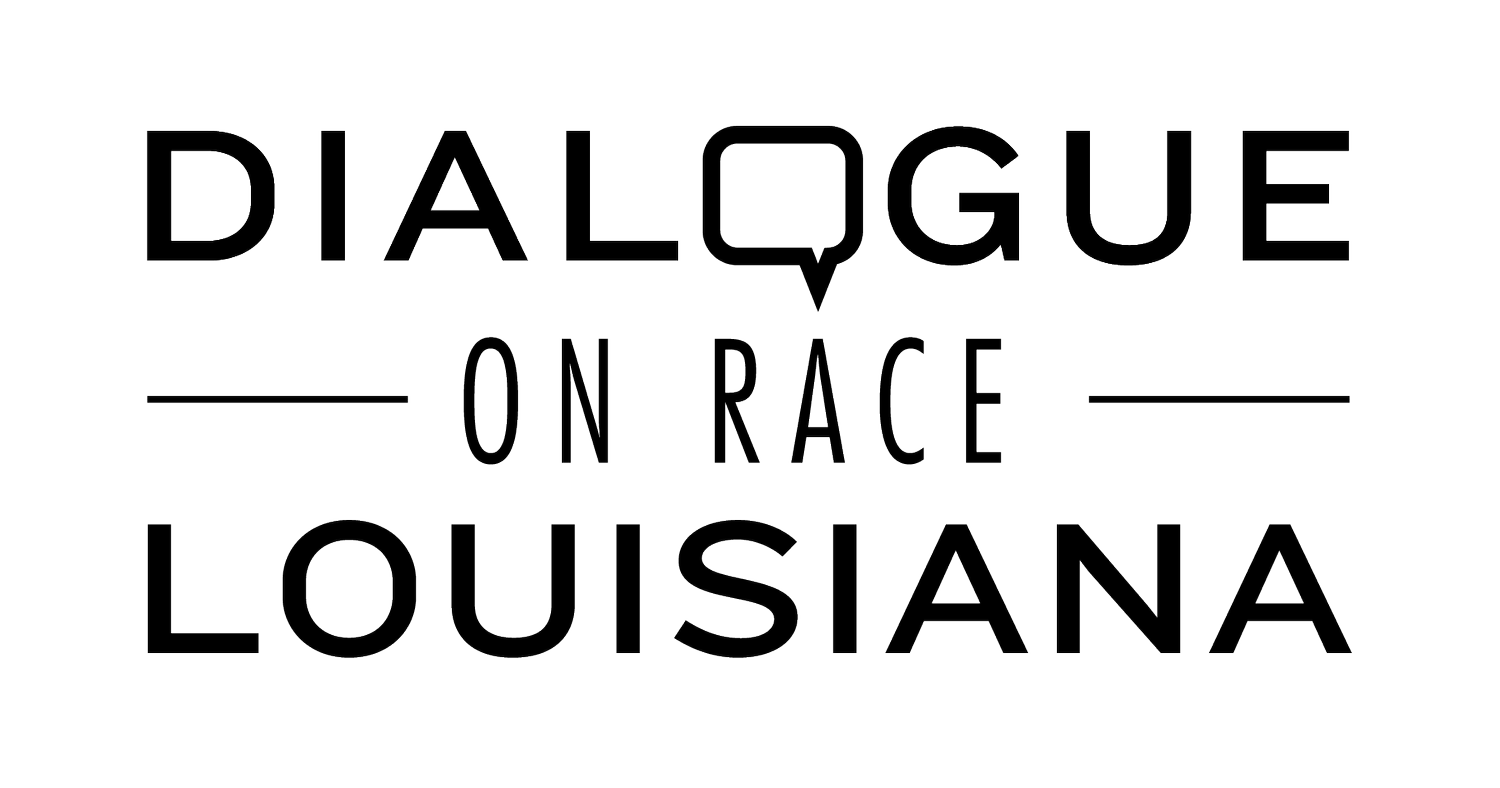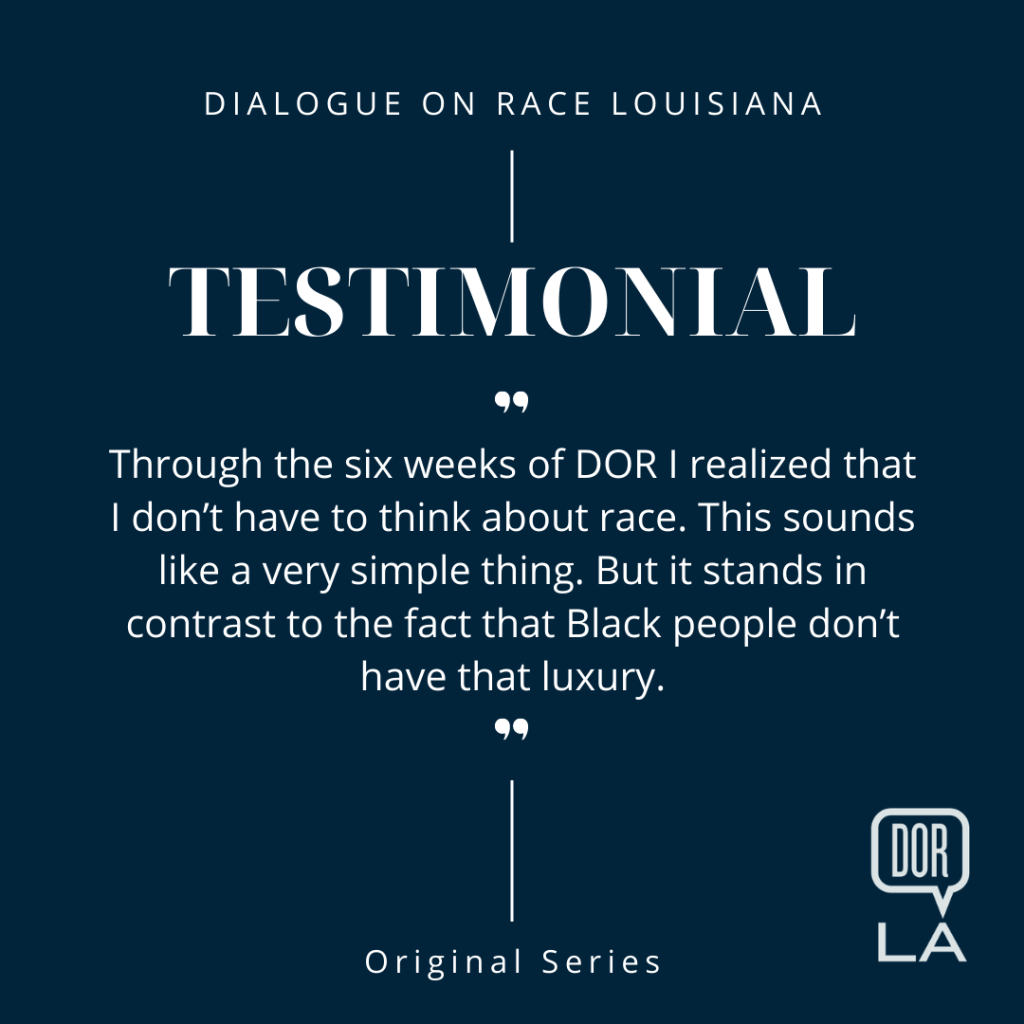A Testimony on the Dialogue on Race Original Series: DOR and Me by Richard Holwill
Originally written by Ian Seaman March 16, 2022
A Testimony on the Dialogue on Race Original Series
The following text is a collection of thoughts written by Richard Holwill, a recent participant in our Dialogue on Race Original Series. His thoughts could reflect a shared experience by a lot of our participants after the Original Series. We present this to further open the conversation about the experience of the Original Series, and how that experience can change one’s perspective on things that we see every day. We also hope that in sharing this testimony, many other participants can attest that this was a shared experience, and that the series promotes open and honest dialogue both inside and outside the discussion space. Who knows, people may often be thinking the same thing you are, and it just takes a dialogue to find that.
Thoughts on the Dialogue on Race in Louisiana
The Dialogue on Race in Louisiana Original Series (DOR) is not intended to turn a racist into a believer in Civil Rights. Someone steeped in racial animus is unlikely to participate and less likely to be moved by the conversation. Rather, DOR is aimed at those of us who do not hate or discriminate, but could grow in perspective as we may not fully grasp the Black experience. Call us racially oblivious.
I’ve seen racism, not just in Shreveport where I grew up, but in most of the places where I’ve lived. But I never had to deal with it except to the extent that I’ve told colleagues that I don’t want to hear racist jokes or be around those who use racial pejoratives. I may have lost a friend or two for having done so but I don’t miss them at all.
DOR’s primary goal is to ensure that participants understand the reality of institutional racism, which is to say the bias built into laws and practices that have a direct or indirect discriminatory impact on Black Americans. The Civil Rights Act renders racial differentiation illegal but it is too simple a tool to address the complexity of the legal system where thousands of laws either intentionally or inadvertently create serious problems for Black Americans. I’ll not catalog those problems here except to say that they range from the way bail is applied in most courts to the way home appraisals are skewed by style and taste, clues that indicate the racial identity of a property owner.
I came to the DOR thinking I was fully comfortable with racial differences. I had hired Black employees, worked closely with them. I even had to fire one. I have lived in a majority Black neighborhood. I have had Black friends, primarily while in the Marine Corps, but those were unique circumstances. I play golf with Black friends, including two senior officers who are retired from the U.S. military services. Because their ranks equaled mine, I thought that we viewed each other as peers. Now I realize our relationships may have been more nuanced.
Through the six weeks of DOR I realized that I don’t have to think about race. This sounds like a very simple thing. But it stands in contrast to the fact that Black people don’t have that luxury. This then forced me to question the idea that Blacks and whites are essentially the same. Indeed they are the same in terms of intelligence, physical capabilities, and medical vulnerabilities.
To survive, however, many Black Americans may have had to adopt various defense mechanisms. I will not speculate about those mechanisms or about how individual Black people handle their relationship to white folks. But I’ve come to realize that Black people must be somewhat guarded when dealing with white people. This does not mean that I should change the way I interact with Black people. It means only that cordial friendships may have an asymmetry that can impede a completely trusting relationship.
In the course of the six-week session, one woman said that she had never had a white friend. That comment saddened me because she seemed so fatalistic when she said it. Like most Americans, I long for the day when racial harmony is the norm and inter-racial friendships are so common that they come naturally. We may well be a generation or more away from that goal but DOR will help us get there by educating the racially oblivious to institutional racism and to the unspoken barriers to friendship.
Richard Holwill
Wilson, Wyoming
March 14, 2022

